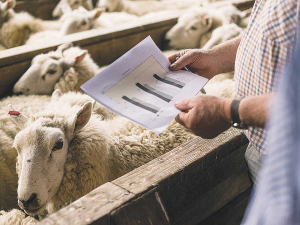NZ scientists make breakthrough in Facial Eczema research
A significant breakthrough in understanding facial eczema (FE) in livestock brings New Zealand closer to reducing the disease’s devastating impact on farmers, animals, and rural communities.
 The report found that the high level of ingenuity in the rural communities was a key element to their resilience and capacity to overcome movement restrictions and the disruption caused by Covid. Photo: Kieren Scott.
The report found that the high level of ingenuity in the rural communities was a key element to their resilience and capacity to overcome movement restrictions and the disruption caused by Covid. Photo: Kieren Scott.
A new study has found a strong ‘can do’ attitude and cooperative spirit in the agricultural sector were significant factors in minimising losses and uncertainties during the Covid restrictions last year.
The report, co-authored by Lincoln University’s Dr Lei Cong – with contributors from AgResearch, The University of Queensland, NZ Institute of Economic Research, and Plant and Food Research – measured the immediate impacts of Covid-19 restrictions to June 2020 on the Australian and New Zealand agri-food systems and how resilient these systems were.
It found the effects on both countries were broadly similar, with relatively minor economic impacts across the surveyed agri-sector industries.
The report says the high level of ingenuity in the rural communities, both in Australia and New Zealand, was likely a key element to their resilience and capacity to overcome movement restrictions and the disruption of value chains.
“Restrictions and new rules of engagement and interaction were adopted rapidly as ‘people accepted a new reality and adapted to it’.”
According to the report, the agricultural sectors in both countries “assimilated the many ‘unmanageable disruptions’, such as the loss or disruption to export markets and short supply of inputs. This created impetus for diversifying markets and strengthened business cases for value-adding and local manufacturing.”
It also suggests that this resilience emerged from a combination of the agri-sector industries having relatively high technology, being well connected/networked and having some experience of prior shocks – as well as being well supported, primarily logistically, by their governments.
“Agricultural producers in Australia and New Zealand are well organised and business-oriented, and thus had the right structures and sufficient financial backing to manage through a pandemic,” the report states. “Product demand was maintained domestically due to income support, while export markets remained fairly constant.”
It also noted that some important lessons – such as the need to upskill young people in rural areas and control or reverse the negative rural migration, the need to diversify export markets, as well as the need to plan for the ‘unplannable’ to deal with the next ‘Black Swan’ event.
The researchers conducted 44 interviews and had 321 responses to the survey with similar numbers of responses from non-farmers across the two countries. They had about twice as many responses from farmers in New Zealand than in Australia.
Could a breakthrough in fermentation create a new multi-million-dollar export market for shiitake mushroom extracts into China?
Meadow Fresh has created the world's first fantasy sports league powered by real cows.
This year, 'Foodie February' sees potatoes take the spotlight as one of New Zealand's most powerful and versatile food heroes.
A multi-cultural team is helping to establish one of New Zealand's largest plantings of premium eating grapes - while learning each other's languages and cultures along the way.
The World Wide Sires National All Day Breeds Best Youth Camp Best All Rounder plaudit has become family affair, with 2026 Paramount Cup winner Holly Williams following in her sister Zara's footsteps.
DairyNZ is giving New Zealand farmers a unique opportunity to gain hands-on governance and leadership experience within the dairy sector.